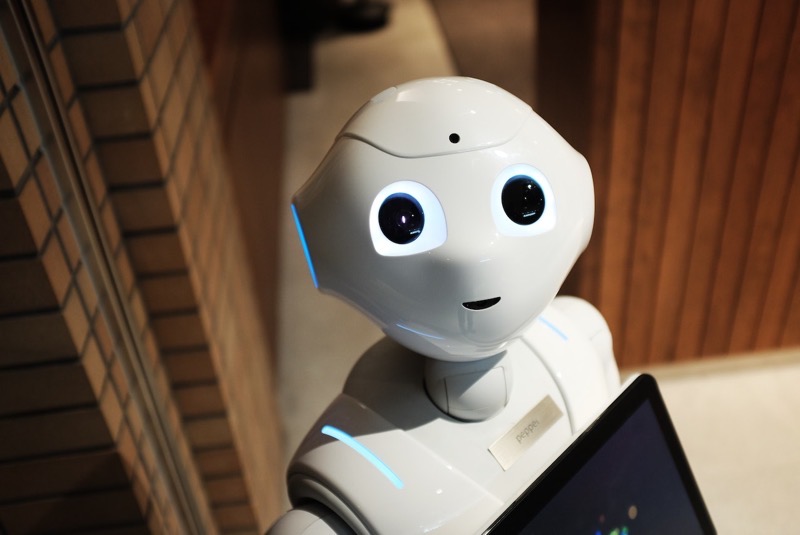A decade ago, people used to joke about how humans may depend on robots or artificial intelligence for the simplest tasks. Till then, it seemed like a distant dystopia. But now, in 2023, it is not uncommon to see advertisements on television or social media where families command Alexa or Google to do basic things such as turning on the geyser and switching off the lights.
Indeed, Artificial Intelligence (AI) is the gateway to a dramatic new world.
Years ago, Mark Zuckerberg released a video introducing the world to Jarvis, an Artificial Intelligence programme computed using the voice of Morgan Freeman that helped run his household. The first thing one notices about Jarvis is that the AI bot controls Zuckerberg, not vice versa. He depended on the bot even for things like singing a lullaby to his daughter.
Today, it is not uncommon for parents to use Alexa to teach nursery rhymes to their kids. Previously, Artificial Intelligence was limited to research laboratories, classified as ‘experimental research.’ However, it has quietly leapfrogged into controlling many aspects of our lives today.
Without our knowledge, AI controls many aspects of our lives – from influencing our purchasing decisions to convincing vast numbers of people to vote for autocratic rulers through reams of disinformation or misinformation.
Let’s start with a simple, verifiable example. Pick up your phone and start speaking of buying sports shoes. Within seconds, Google’S AI programmes will bombard you (your email account and all other accounts connected to your mail, such as YouTube) with hundreds of advertisements offering sports shoes. If you search ‘sports shoes’ in your Google search box, you see a barrage of adverts and links recommended by Google on the first page. Most people don’t go beyond the first page or the first few links.
What’s the rationale behind the search results? Google is not transparent about how it throws up search results. Ergo, one can comfortably understand that Google’s AI algorithms influence our purchasing decisions.
Furthermore, most of our life is dependent on Google’s patented technology. From purchasing decisions (google search), travel history (google maps), physical health (from apps calculating the number of steps to apps calculating our blood pressure), to emotional health (through apps about mental health), our life is meticulously documented by AI algorithms and used to make Google, Amazon and other such tech companies more profitable.
That means Artificial Intelligence has paved the way for surveillance capitalism, where now it is easy for Multinational Corporations to steal your data and sell it in the name of “consumer efficiency.” Tech companies deploy AI in areas as diverse as radiological diagnostics, pharmaceutical drug design, and drone navigation.
A Brief History Of AI
AI is essentially concerned with replicating human capabilities. Interest in automation replicating human abilities can be traced back to a summer project by John McCarthy and others in 1996. These founding figures started work based on “the conjecture that every aspect of learning or any other feature of intelligence can, in principle, be so precisely described that a machine can be made to stimulate it.”
These experiments started with a single question: could Artificial Intelligence (AI) defeat Human Intelligence (HI)?
In a celebrated encounter in 1997 between a man and a machine, IBM’s Deep Blue inflicted a shocking defeat on the then-world chess champion, Gary Kasparov. This defeat was unnerving as it heralded the breach of a frontier.
One of the critical assumptions in the advancement of AI, at least in the initial phase, is that AI can not be sentient or conscious, an ability considered the preserve of intelligent human beings. However, as AI advanced rapidly, scientists, programmers and researchers grappled with another question: will AI become sentient and act like humans? If so, would humans become subservient to AI machines and be controlled by them?
AI has now gone sentient. It’s a matter of great concern, even for founders who vehemently advocated for the advancement of AI.
The Problem With AI & The Question Of Ethics
As contemporary AI methods depend on deep learning from data, the professional logic of ‘endless improvement’ has produced an imperative to collect data without regard for ethical implications. The culture of rampant data collection has an enormous impact on privacy and surveillance. This provides a perfect opportunity for companies such as Facebook, Amazon and Google to leverage their monopolies in the global economy.
This also paves the way for authoritarian regimes and even democratic governments to use data and spyware unethically through applications that collect biometric data. For example, China has imposed extraordinary surveillance on the Uighurs, an ethnic minority group, using a vast panoply of tools. In India, we have seen the havoc caused by Pegasus, spyware that likely targeted influential figures and threatened the very crux of their existence.
The threat, however, is not just from the State alone. The internet’s marriage corpora of behavioural data that it extracts from millions of users of search engines and social media platforms, often obtained illegally, has harmful effects on society as these data are used to create eco chambers that operate to promote propaganda politics and fake news.
The concept involved here is very simple. If, for example, a right-wing Modi supporter shares and ‘likes’ content that validates his ideology, he will be given more content of the same type to keep him engrossed.
The social media platform – which acts on the data of what you like, post and comment online – will create your duplicate profile. Now, whenever you are probably watching one video, it will quickly start the next one of a similar kind to keep you hooked. This profiling gives rise to echo chambers in which ideologies operate; hence, without an alternative perspective, one cannot see beyond the subtle but specific brainwashing.
Companies that collect data are more than willing to sell it for a price to the Government or political parties without any accountability. Such data is used to manipulate electoral outcomes. Collecting and selling one’s life – as ‘data’ – is horrifying and threatens our democratic rights and freedom to cooperate as individuals.
Now, AI tools are controlling drones; killing is now an automated process. Armies across the world are using AI generated models to attack one another. And there is a clear and persistent danger of AI machines uniting to extinguish humans entirely.
AI tools like ChatGPT are creating music, making art, producing images and videos, organising travel itineraries, organising homes, writing student essays, investing in stock markets – and much more. It begs the question: will AI make humans irrelevant?
Yet, despite AI posing an enormous challenge, large multinational corporations who create AI tools are not regulated; despite numerous committees and question panels, they remain outsides the legal purview.
As AI spreads its tentacles in India, it is no longer a distant threat. We are slowly but surely being manipulated through surveillance and data gathering. If we do not take it seriously and act immediately, we will have no choice but to compromise on our cherished values of freedom and dignity.
-30-
Copyright©Madras Courier, All Rights Reserved. You may share using our article tools. Please don't cut articles from madrascourier.com and redistribute by email, post to the web, mobile phone or social media.Please send in your feed back and comments to [email protected]











